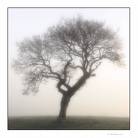I know its getting to be around that time of year again for all the allergy sufferers who may visit the site -
I have a few recommendations on supplements for those (like myself) with allergy issues
In no particular order -
Please update if you have any information I haven't posted!
A general allergy resource link - http://www.raysaheli...om/allergy.html
1. Fish Oil - (releives inflammatory symptoms)
Increase EPA Fats - Eat less Omega 6's
Link to article with references - http://www.healthspa...cle.aspx?Id=116
2. Vitamin C (and other potent anti-oxidants)
Same article from above with references - http://www.healthspa...cle.aspx?Id=116
Allergy article by Dr. Ray Shahelian - http://www.raysaheli...om/allergy.html
3. Mangosteen
From Dr. Ray Sahelians site -
http://www.raysaheli...mangosteen.html
Natural Antihistamine Research Update
Inhibitions of histamine release and prostaglandin E2 synthesis by mangosteen, a Thai medicinal plant.
Biol Pharm Bull. 2002 Sep;25(9):1137-41.
The fruit hull of mangosteen, Garcinia mangostana L. has been used as a Thai indigenous medicine for many years. However, the mechanism of action of mangosteen as a medicine has not been elucidated. The present study was undertaken to examine the effects of mangosteen extracts (100% ethanol, 70% ethanol, 40% ethanol and water) on histamine release and prostaglandin E2 synthesis. We found that the 40% ethanol extract of mangosteen inhibited IgE-mediated histamine release from RBL-2H3 cells with greater potency than the water extract of Rubus suavissimus that has been used as an anti-allergy crude drug in Japan. All extracts of mangosteen potently inhibited A23187-induced prostaglandin E2 synthesis in C6 rat glioma cells, while the water extract of Rubus suavissimus had no effect. The 40% ethanol extract of mangosteen inhibited the prostaglandin E2 synthesis in a concentration-dependent manner with relatively lower concentrations than the histamine release. In addition, passive cutaneous anaphylaxis (PCA) reactions in rats were significantly inhibited by this ethanol extract as well as by the water extract of Rubus suavissimus. These results suggest that the 40% ethanol extract of mangosteen has potent inhibitory activities of both histamine release and prostaglandin E2 synthesis.
4. NAC - (N-Acetyl-Cysteine)
http://www.raysaheli...om/allergy.html
From the increase in (anti-oxidant) Gluthionine
I know my citations are somewhat weak and I apologize for the limited nature of this resource guide
but...I hope someone finds this info useful and perhaps we can spin out some more options for all of us allergy sufferers












































